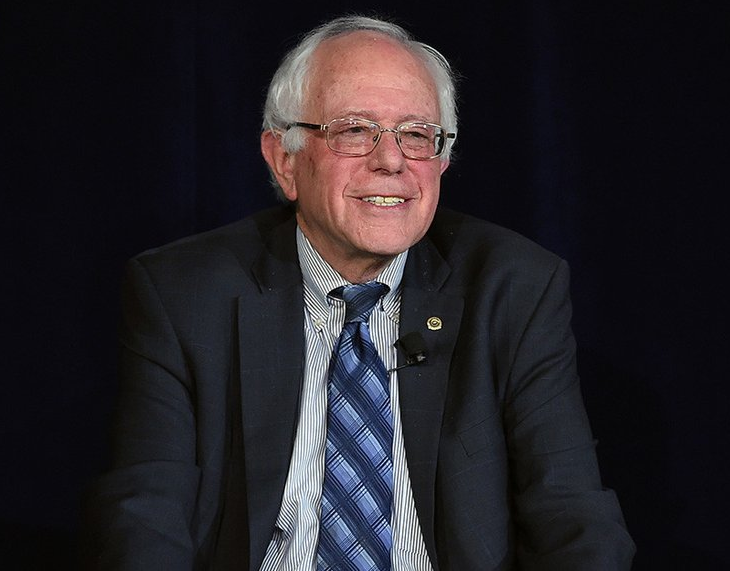
Vermont Sen. Bernie Sanders will win the Wisconsin Democratic primary, CNN projects. Also projected: Texas Sen. Ted Cruz has won the Wisconsin Republican primary, for the GOP.
[Previous story, posted at 8:36 p.m. ET Tuesday]
Ted Cruz and Bernie Sanders are aiming to inflict a rough night on their party front-runners in the Wisconsin primary.
Cruz hopes to haul in all or most of the 42 Republican delegates at stake Tuesday in a victory that would further complicate Donald Trump’s path to the 1,237 delegates needed to secure the nomination before the GOP convention.
Sanders, meanwhile, is hoping to pull off his sixth win of the past seven state contests to undercut Hillary Clinton’s claim that she has already amassed a decisive lead in the Democratic delegate derby.
The most recent polls show Cruz with a 10-point lead in the Republican race in the Badger State, as Trump seeks to recover from the roughest week of his campaign, which was strewn with missteps on abortion and controversial comments on national security.
Speaking on WISN radio in Milwaukee on Tuesday, Cruz predicted a “strong victory” in Wisconsin that would be a “powerful step” toward uniting the Republican Party.
Trump, however, is warning that the polls are wrong in the state’s open primary — a type of election that can be unpredictable because registered voters can choose to vote for candidates from either side of the political aisle.
“I hear the polls are busy. We could have a big surprise tonight folks, a big surprise. Feels like South Carolina, feels like New Hampshire, you’re going to have a big surprise tonight,” he said at a polling place Tuesday in Waukesha, Wisconsin.
Such a scenario would be a disaster for Cruz, calling into question his claims that he has established himself as the only candidate with a realistic chance of stopping Trump.
Wisconsin was once seen as a favorable state for Trump, since its Rust Belt manufacturing base has been hit by the migration of jobs to low-wage economies abroad and should be receptive to his criticism of global trade deals.
Based on the latest CNN delegate estimates, Trump has 740 of the 1,237 delegates needed to win the nomination. Cruz has 474 and Ohio Gov. John Kasich has 145.
Cruz only has a small mathematical chance of winning the nomination, since a flurry of states voting before the end of April favor Trump. Kasich, who has won only one state, cannot reach the critical number in remaining contests.
But both men hope to win sufficient delegates to open the way to a contested convention. Trump currently needs to win 57% of the remaining 871 pledged delegates to clinch the nomination. If he walks away from Wisconsin without adding any delegates, that number rises to 60%, according to CNN estimates.
Facing a possible defeat in Wisconsin, and still trying to brush off his string of gaffes last week, Trump turned the focus Tuesday back to the issue that ignited his campaign in the first place: illegal immigration. He issued a memo outlining a plan to bar undocumented Mexican immigrants from wiring money home to relatives if Mexico’s government did not agree to pay $5 billion to $10 billion to fund a border wall.
On the Democratic side, Sanders is aiming to capitalize on a hot streak to build up more momentum heading into the delegate-rich New York primary on April 19, where Clinton hopes to secure a win on home turf to maintain her big delegate lead.
But Sanders has a more complicated task than Cruz in slowing his party’s front-runner, since Democratic delegates are doled out on a proportional basis rather than the winner-take-most formula used in Wisconsin by Republicans.
Still, the state should be a fertile one for Sanders, as it is similar to largely white battlegrounds where he has done well, has a long progressive tradition that should be a good fit with his grass-roots democratic socialism and has a strong population of students who have tended to side with him more than Clinton.
Jeff Weaver, the Vermont senator’s campaign manager, on Tuesday deflected Clinton campaign arguments that the former secretary of state already has an insurmountable delegate lead by suggesting Sanders could emerge with the nomination at the convention.
“If you look at the math, if you want to talk about math, the truth is that it is very, very, very unlikely that either candidate, either Secretary Clinton or Sen. Sanders, will go into the convention with a majority needed of pledged delegates in order to win,” Weaver told CNN’s Chris Cuomo on “New Day.”
Clinton and Sanders are chasing their magic number of 2,383 delegates to win the nomination. Clinton currently has 1,742 total delegates — 1,259 of whom are pledged or bound to vote for her and 483 super delegates who have said they support her but theoretically could switch allegiances. Sanders has 1,051 total delegates, including 1,020 pledged and 31 super delegates.
“I think it’ll be an interesting Democratic Convention,” Weaver said.
But Robby Mook, Clinton’s campaign manager, suggested the map favors Clinton, who is targeting big wins in delegate-rich areas in the weeks to come.
“There are a lot of contests coming up, there are three very delegate-rich states coming up, Pennsylvania, New York and then California,” he told CNN’s John Berman on “New Day.” “I think there are plenty delegates for one candidate to get a majority of pledged delegates.”
Clinton had already moved on from Wisconsin on Tuesday. She held a “Women for Hillary” town hall meeting in Brooklyn, where she focused squarely on Republicans and rebuked Trump for “peddling prejudice” about women and Muslims.
“I wish he’d get out of one of his towers and actually walk the streets and spend time with the people of this city,” Clinton said.


